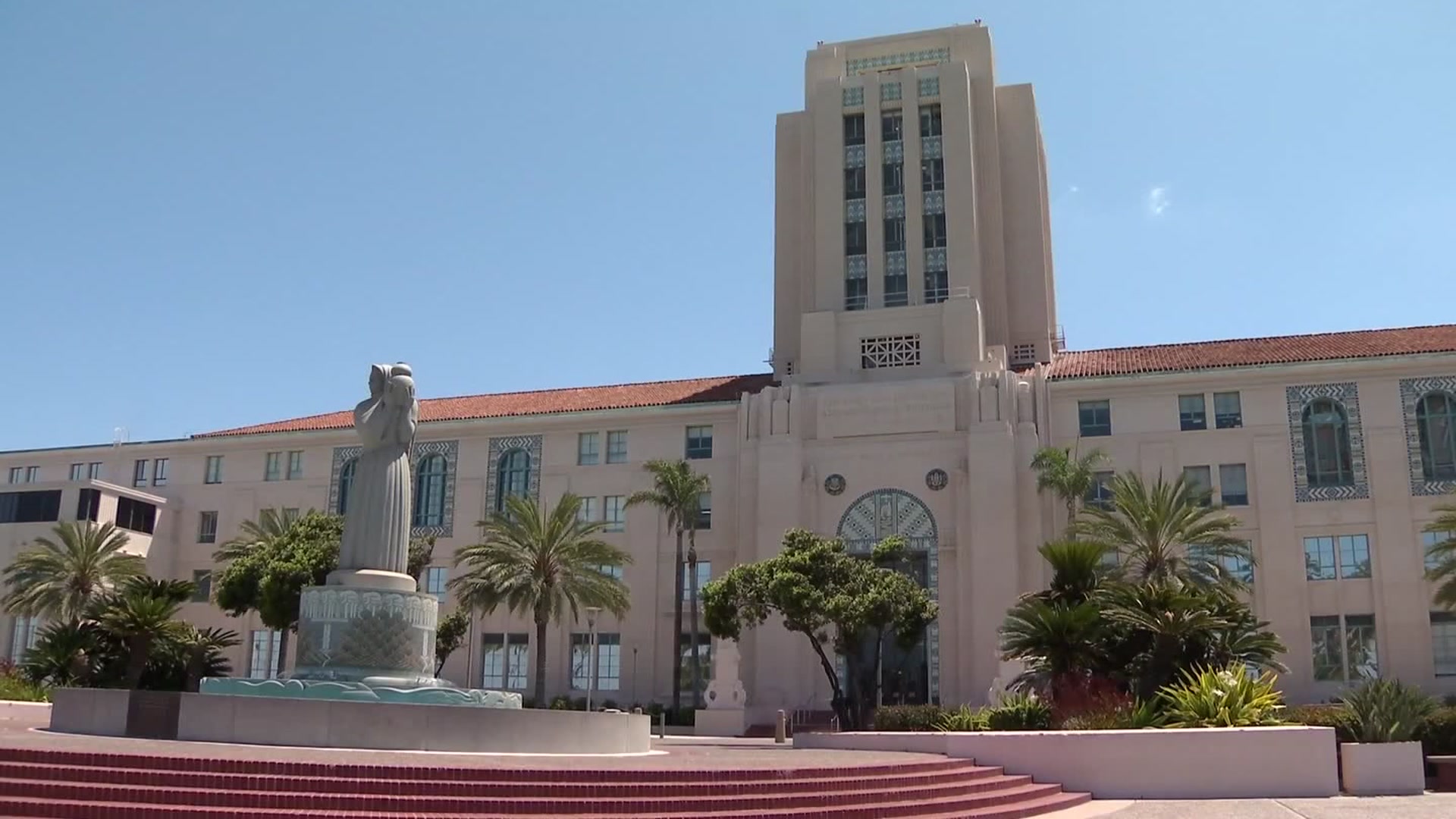Special training got underway on Wednesday in San Diego to deal with explosions caused by improvised explosive devices (IEDs) and homemade bombs. Law enforcement, firefighters and members of the military are learning to investigate these types of explosions.
The unique training comes on the heels of Wednesday morning's explosion caused by what authorities described as an IED that injured at least two people at a courthouse in Santa Maria.
It was hardly business as usual at the Republic Services Sycamore Landfill. Alcohol Tobacco and Firearms agents rigged cars and SUVs with IEDs and then detonated them inside the vehicles.
As uncommon as such explosions may be in a landfill, so is the unique training for which the vehicles will be used.
Get top local stories in San Diego delivered to you every morning. >Sign up for NBC San Diego's News Headlines newsletter.
“Thankfully, bombings are still a rare occurrence in the United States, but the need to prepare for those investigations, it's important,” said Randall Dockens, an ATF trainer and one of the instructors leading the post-blast investigative techniques course.
There are 24 students from the Navy, Airforce, local bomb squads, and fire and police departments in and around San Diego. The training includes 40 hours of classwork and evidence collection. It is designed to teach a systematic method of investigating an explosion scene.
The challenge for students is to reconstruct the IEDs. It requires them to search all the debris and somehow find the detonator, what the explosive material is, what it came in and the blast pattern with 100% accuracy. It’s not easy.
Local
“They like that 'who done it,' and they realize in an explosive investigation is it’s very possible to get that 'who done it' attitude and solve the investigation,“ Dockens said.
ATF says there is no current eminent threat in the U.S., but they are seeing improvised explosives used in many other places.
“The conflict in Ukraine. There are a lot of improvised explosive devices being used in Mexico and south of the border in drug cartel operations,” Dockens said.
Among the ATF instructors is Sergio Salazar. He is based in Mexico City and says the material used in improvised explosives is more sophisticated and designed to inflict greater damage.
"The devices we view in Mexico have not arrived yet to U.S., but we provide this information to the students because we need to prepare in case the devices arrive here,“ Salazar said.
The training was originally developed for ATF agents only, but Dockens says its value is not jurisdictionally dependent.
“We decided to partner with these agencies to provide this training ahead of time, so when that incident does happen, it’s not the first time we’ve seen it or they’ve seen it or seen each other,” Dockens said.
What local investigators learn from such training now might help them catch someone plotting an attack later, closer to home.
“Getting these agencies together, you really want to have that cross-talk,” Giovanni Guillem, an explosives safety officer with 20 years of military experience, told NBC 7. “You want to have people on the same page working together and bringing the wealth of knowledge from all different directions coming together and saying, ‘this is the best we’ve got, let’s work together to make a better solution.”
Guillem was one of the two dozen participants in the course to sift through the aftermath of the explosions on Thursday. The group was split into three teams, then each team was assigned to investigate one of the three cars that exploded.
“What’s the best way to keep everybody safe? What was learned during this incident? You know, to make sure that what we have is real-world, it’s practical,” Guillem said.
He was one of the team leaders and led his group through painstakingly-detailed evidence identification and collection. Then, they narrowed down on the explosive device and managed to figure out how the bomb was made, as well as if there were any signatures used. Guillem added that these are all skills that they hope they don’t need, but that civilians should be comforted to know they have.
“When we think of these kinds of instances, we don’t really think of, you know, what goes into it, what kind of work goes into it,” he said. “It’s protecting everybody in ways that we don’t even know exist.”



